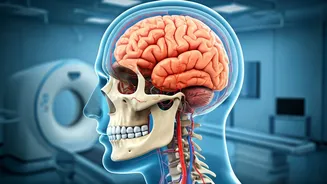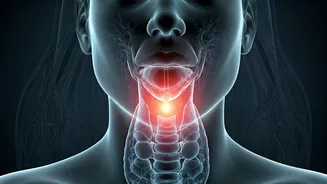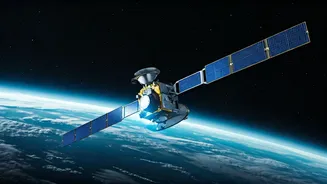The Space Context
The environment of space presents numerous challenges to human health that include microgravity and radiation exposure. During prolonged periods in space,
the human body undergoes several changes, which can lead to negative health outcomes. In the realm of skeletal health, astronauts often suffer from bone density loss. This is due to the lack of weight-bearing stress on bones in the weightless environment of space, a phenomenon similar to the bone loss experienced by individuals with limited mobility on Earth. Addressing this issue is of the utmost importance for missions to the Moon and Mars, where astronauts could face significant health risks without effective countermeasures.
Bone Loss Insights
The absence of Earth's gravity in space triggers a cascade of effects that impact bone health. The research conducted by NASA and its partners indicates the need for effective measures to combat bone loss. These countermeasures may involve rigorous exercise regimes, dietary supplements, and medications to stimulate bone formation or decrease bone resorption. NASA is also investigating the potential benefits of new technologies and protocols to mitigate these effects. Through these studies, the organization aims to gain a clearer understanding of bone metabolism in space, enabling the development of personalized health strategies for astronauts. This research not only benefits space travelers but also informs the treatment of bone-related conditions on Earth, such as osteoporosis.
Brain Adaptation Details
In addition to bone loss, astronauts experience changes in their brains. When the body adjusts to the absence of gravity, fluids shift within the body, which can cause pressure changes in the brain. This altered fluid distribution can impact the brain's structure and function over time. NASA studies examine how the brain adapts to microgravity. Researchers use advanced imaging techniques like MRI to monitor the brain changes in astronauts during and after spaceflight. They are assessing cognitive performance, studying the effects on sensory processing, and assessing the risk of long-term neurological conditions. The information gathered is essential to developing effective strategies to protect astronauts' neurological health during extended missions.
ISS Research Scope
The International Space Station (ISS) serves as a crucial laboratory for NASA and its international partners to conduct space health research. The ISS allows scientists to study the long-term effects of spaceflight on the human body. Astronauts on the ISS become active participants in the experiments. Their data is rigorously collected and analyzed to provide a clear picture of the changes that occur over time. These studies focus on both bone health and brain adaptation. The comprehensive research on the ISS provides valuable insights for safeguarding astronaut health during deep space missions, including those aimed at the Moon and Mars. NASA's commitment to astronaut well-being underscores the critical importance of these ongoing studies.
Future Mission Benefits
The outcomes from the research have far-reaching implications for future space endeavors. The insights into bone loss and brain adaptation have direct relevance to planning and executing missions to the Moon and Mars. Addressing these health risks becomes crucial for astronaut safety and mission success. The studies inform the development of advanced medical technologies and countermeasures. These include advanced exercise equipment, nutritional supplements, and pharmacological interventions designed to mitigate the adverse effects of spaceflight. The knowledge gained from these studies also contributes to the improvement of health treatments on Earth. Research on the impact of space travel can assist in treating conditions such as osteoporosis, and neurological disorders and offers insights into human health and well-being.












